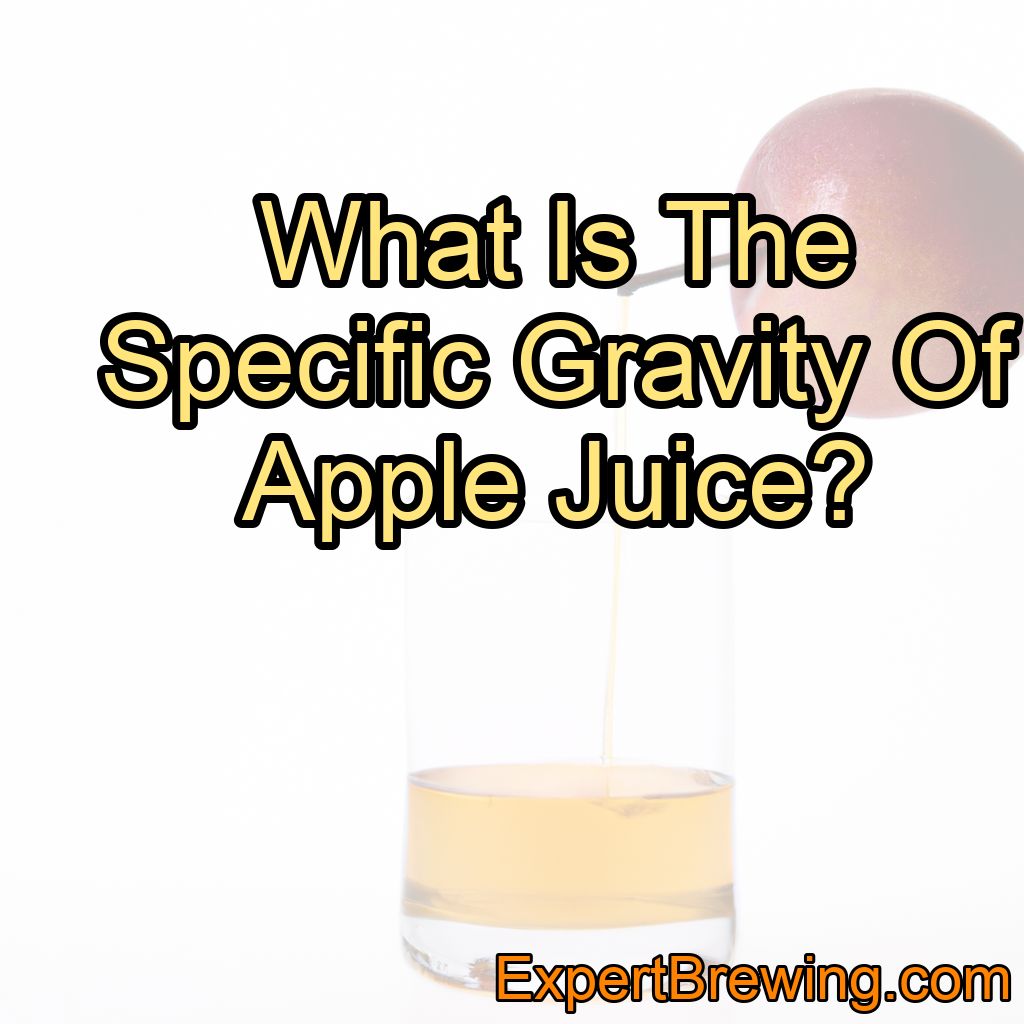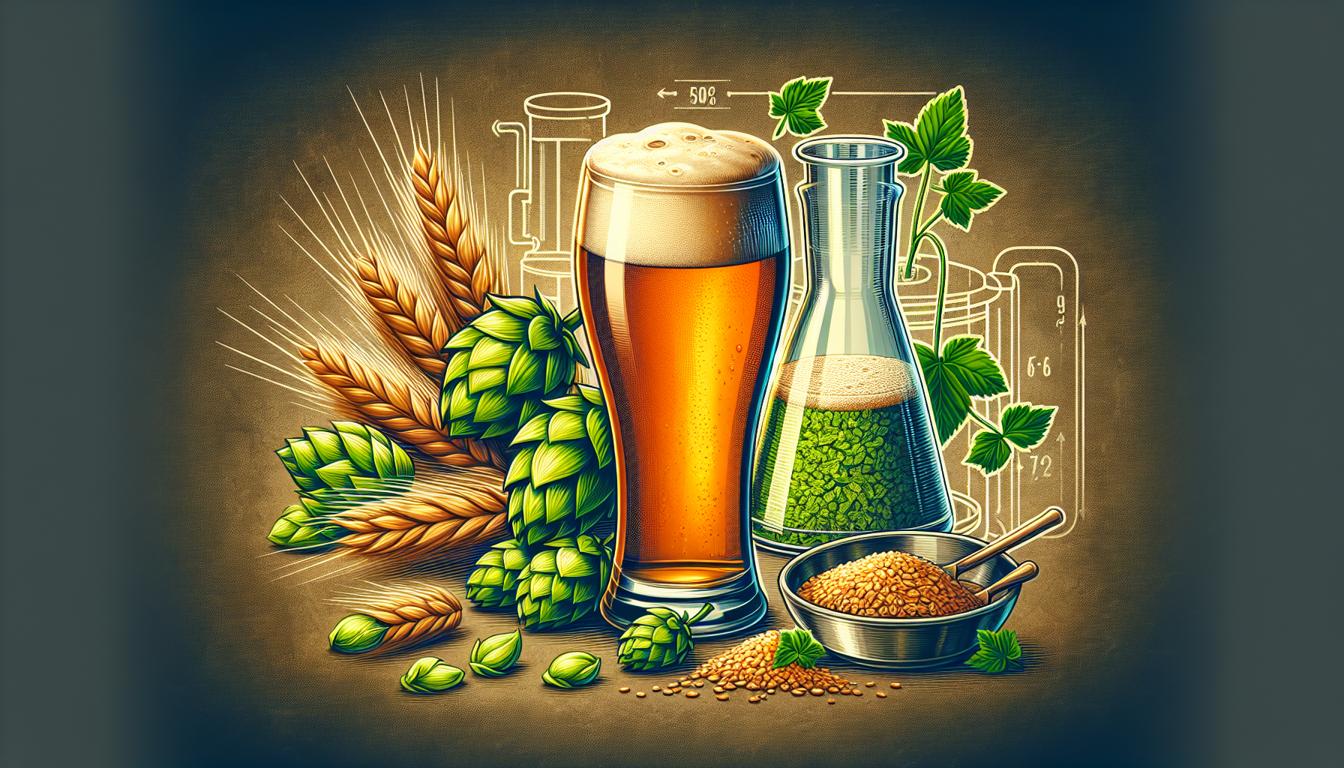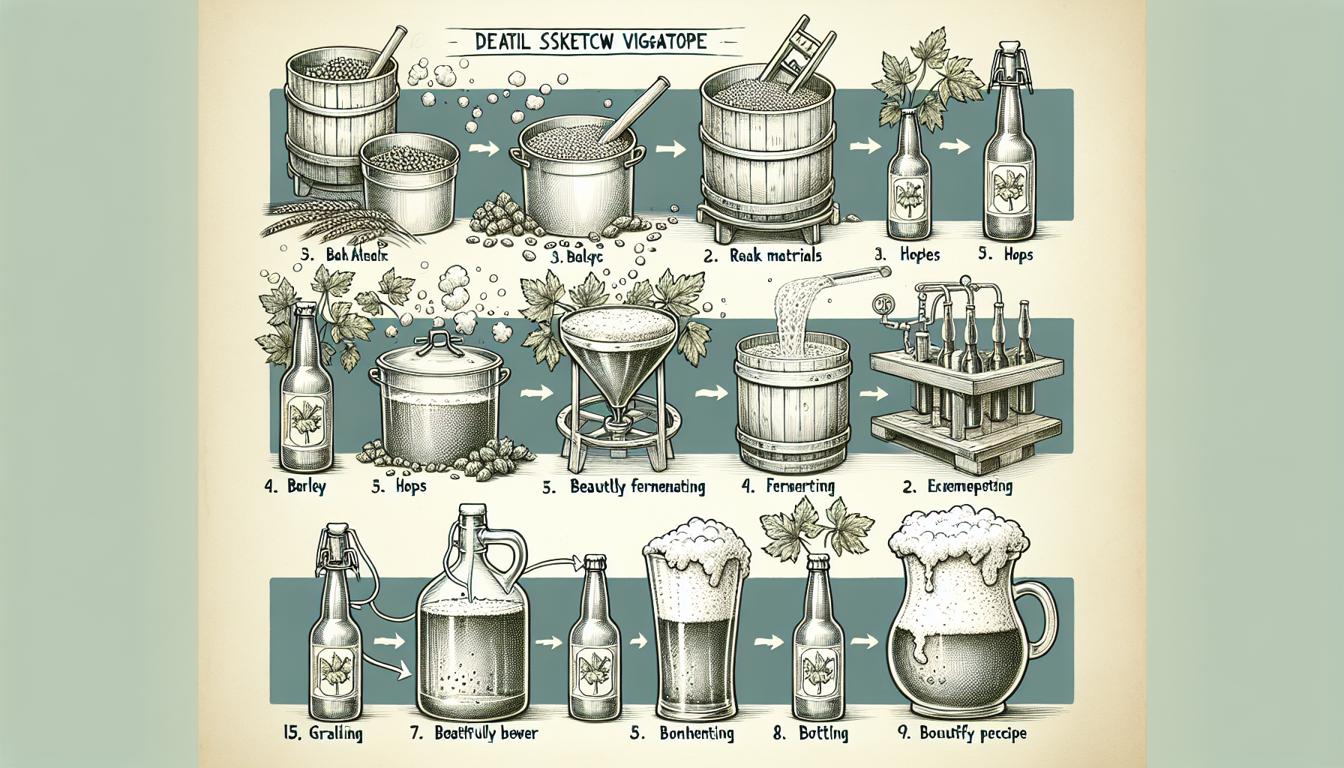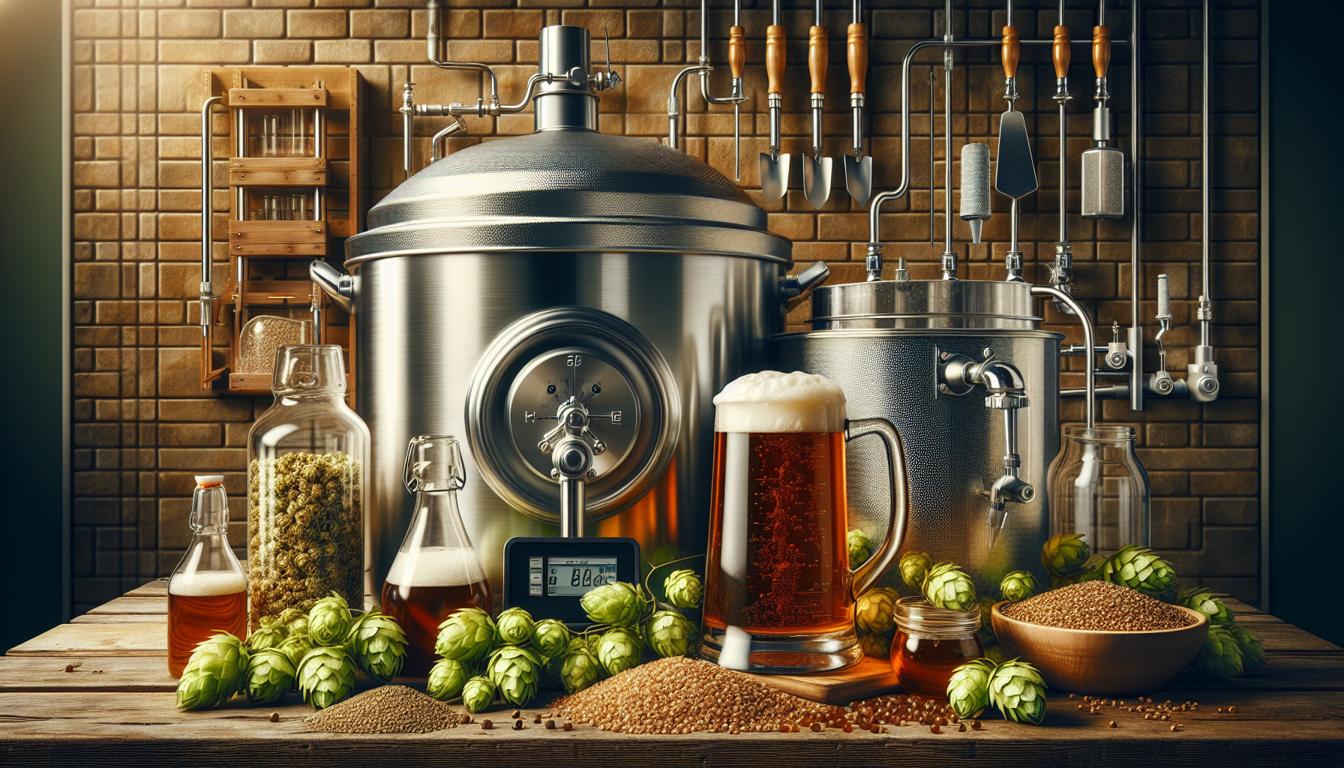The specific gravity of apple juice typically ranges between 1.040 and 1.050. This measurement is essential for cider makers and homebrewers as it helps them determine the potential alcohol content of their beverages and monitor the fermentation process. In this blog post, we will explore the specific gravity of apple juice, its importance in the brewing process, and some factors that can influence this value.
What is Specific Gravity?
Defining Specific Gravity
Specific gravity is a dimensionless unit that compares the density of a liquid to the density of water. It is a crucial parameter in the brewing and fermenting industry, as it gives an insight into the sugar content of a liquid, which ultimately dictates the alcohol content and taste of the final product.
Measuring Specific Gravity
To measure the specific gravity of a liquid, brewers use a device called a hydrometer. A hydrometer is a simple instrument that consists of a weighted bulb and a graduated stem. When placed in a liquid, the hydrometer will float at a certain level, indicating the specific gravity on the stem’s scale. It’s essential to use a clean, well-sanitized hydrometer and follow proper technique to obtain accurate readings.
The Importance of Specific Gravity in Cider Making
Determining Potential Alcohol Content
The primary reason specific gravity is essential in cider making is that it allows the brewer to determine the potential alcohol content of the finished product. By measuring the specific gravity before and after fermentation, a brewer can calculate the approximate alcohol content using a simple formula:
ABV (Alcohol by Volume) = (Initial Specific Gravity – Final Specific Gravity) × 131.25
This calculation gives an estimate of the alcohol content in the cider, helping the brewer determine if the desired alcohol level has been achieved.
Monitoring Fermentation Progress
Another reason specific gravity is crucial in cider making is that it allows the brewer to monitor the progress of fermentation. As yeast consumes the sugars in the apple juice, it produces alcohol and carbon dioxide. This process causes the specific gravity to decrease. By taking regular specific gravity readings throughout fermentation, a brewer can ensure that the process is progressing as expected and know when fermentation is complete.
Factors Affecting the Specific Gravity of Apple Juice
Apple Variety
The specific gravity of apple juice can vary depending on the type of apples used. Different apple varieties have different sugar contents, which directly affects the specific gravity. Generally, cider apples have higher sugar content than table apples, leading to a higher specific gravity.
Ripeness of Apples
The ripeness of the apples used in juice production also affects the specific gravity. As apples ripen, their sugar content increases, resulting in a higher specific gravity in the juice. It’s essential to use ripe apples in cider making to achieve the desired alcohol content and flavor profile.
Blending Apple Juices
Blending different apple varieties and juices can also impact the specific gravity of the final juice blend. By combining juices with varying sugar content, you can create a juice blend with a specific gravity tailored to your desired cider characteristics.
Pressing Method
The method used to press the apples can also influence the specific gravity of the juice. Different pressing techniques can yield varying amounts of juice from the apples, which can affect the concentration of sugars in the juice and, therefore, the specific gravity.
Adjusting the Specific Gravity of Apple Juice
Adding Sugar
If your apple juice’s specific gravity is too low for your desired cider characteristics, you can add sugar to increase the potential alcohol content. This process, known as chaptalization, involves adding sugar to the juice before fermentation. Be cautious when adding sugar, as too much can lead to an overly sweet or high-alcohol cider.
Diluting with Water
Conversely, if your apple juice has a higher specific gravity than desired, you can dilute it with water to decrease the sugar concentration. Diluting with water can also help balance acidity and tannin levels in the juice, leading to a more balanced cider.
Conclusion
In conclusion, the specific gravity of apple juice typically ranges between 1.040 and 1.050. By understanding and measuring specific gravity, brewers can determine the potential alcohol content of their cider and monitor the fermentation process. Factors such as apple variety, ripeness, blending, and pressing method can all affect the specific gravity of apple juice. If necessary, brewers can adjust the specific gravity by adding sugar or diluting with water.
Here are ten essential facts about the specific gravity of apple juice:
1. Specific gravity is a dimensionless unit that compares the density of a liquid to the density of water.
2. It is an essential parameter in determining the potential alcohol content and monitoring the fermentation process of cider.
3. Specific gravity is typically measured using a hydrometer.
4. The specific gravity of apple juice usually ranges between 1.040 and 1.050.
5. Different apple varieties can have varying sugar content, affecting the specific gravity of the juice.
6. The ripeness of apples also influences the specific gravity, as sugar content increases with ripeness.
7. Blending apple juices can create a juice blend with a specific gravity tailored to the desired cider characteristics.
8. The pressing method used can impact the specific gravity of apple juice.
9. If necessary, specific gravity can be adjusted by adding sugar (chaptalization) or diluting with water.
10. Understanding and measuring specific gravity is crucial for producing a cider with the desired alcohol content and flavor profile.
FAQs
What is the final gravity of apple cider?
The final gravity of apple cider typically ranges from 1.000 to 1.010, depending on factors such as the type of apples used, the fermentation process, and the addition of sugars or other ingredients.
What is the average gravity of apple cider?
The average gravity of apple cider is around 1.050-1.065 Specific Gravity (SG), which translates to around 12-14% potential alcohol content.
What is apple concentrate?
Apple concentrate is a puree made from apples that has been filtered to remove the solids and reduce the water content. It is commonly used as a sweetener or flavoring in food and beverage products.
What is the specific gravity of apple concentrate?
The specific gravity of apple concentrate varies depending on the concentration of the product, but typically ranges from 1.4 to 1.5.
What is the difference between apple juice and apple juice concentrate?
Apple juice is the liquid extracted from apples, while apple juice concentrate is made by removing the water content from apple juice, resulting in a more concentrated form of the juice.
What is the density of apple concentrate?
The density of apple concentrate can vary slightly depending on factors such as the concentration level and temperature, but it typically ranges from 1.25 to 1.35 grams per milliliter.




